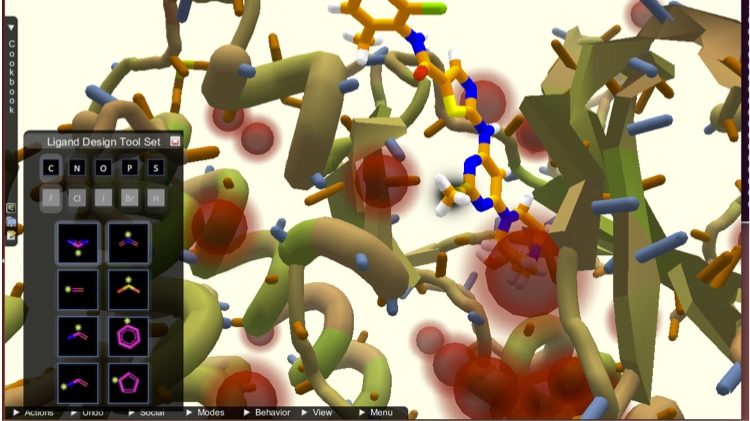The University of Washington at Seattle has created a videogame in which users must create an antiviral protein to help scientists fight the Coronavirus.
“Awakening Your Inner Scientist”. That’s the slogan that researchers at the University of Washington at Seattle have come up with to promote the Foldit videogame. It is an online videogame developed to help scientists in the research and development of a cure for the coronavirus. Within the game, users can try their hand at developing antiviral protein against Covid19. Assisted by a series of tutorials, the player “manipulates” proteins as in a kind of three-dimensional puzzle. The best solutions are tested by the Institute for Protein Design of the University of Washington, which tests their effectiveness and application possibilities. The video game is free, you can download it on your PC (Windows, Mac and Linux) and is designed for all “citizen scientists”, i.e. all those who want to make a tangible contribution in the fight against the Coronavirus.
What if computer gamers could help stop #coronavirus? We think they can 🎮🦠
Create antiviral proteins by playing Foldit: https://t.co/ueg2sVdoEe
The best solutions will be manufactured & tested at the Institute for Protein Design (@UWproteindesign)#COVID19 #CitizenScience pic.twitter.com/xGqvQNKD87
— Foldit (@Foldit) March 4, 2020
How the videogame against the Coronavirus works
Foldit offers a 3D graphical representation of the protein structure and the user can manipulate it with the help of some tools. The goal is to find a structure that is efficient and able to work with little energy. When the user finishes the puzzle, the program calculates a score by evaluating the structure and effectiveness of the protein design. These scores make it possible to draw up a global ranking and the most promising simulations move on to the laboratory phase. A wet-lab tries to crystallize the simulation results to compare them with those obtained from the natural folding of the protein and see the differences. In this way, explain the developers of the platform, you can give “a hand to advance knowledge in biochemistry that could lead to new treatments for the disease”. This is not the first time that the Foldit platform is used to help research. In 2011, users were able to decipher the crystalline structure of the protease protease of the Mason-Pfizer retrovirus, a monkey virus capable of generating immunodeficiency infections in humans (HIV/AIDS). The puzzle was available online for three weeks, while players produced an appreciable 3D result in 10 days.
